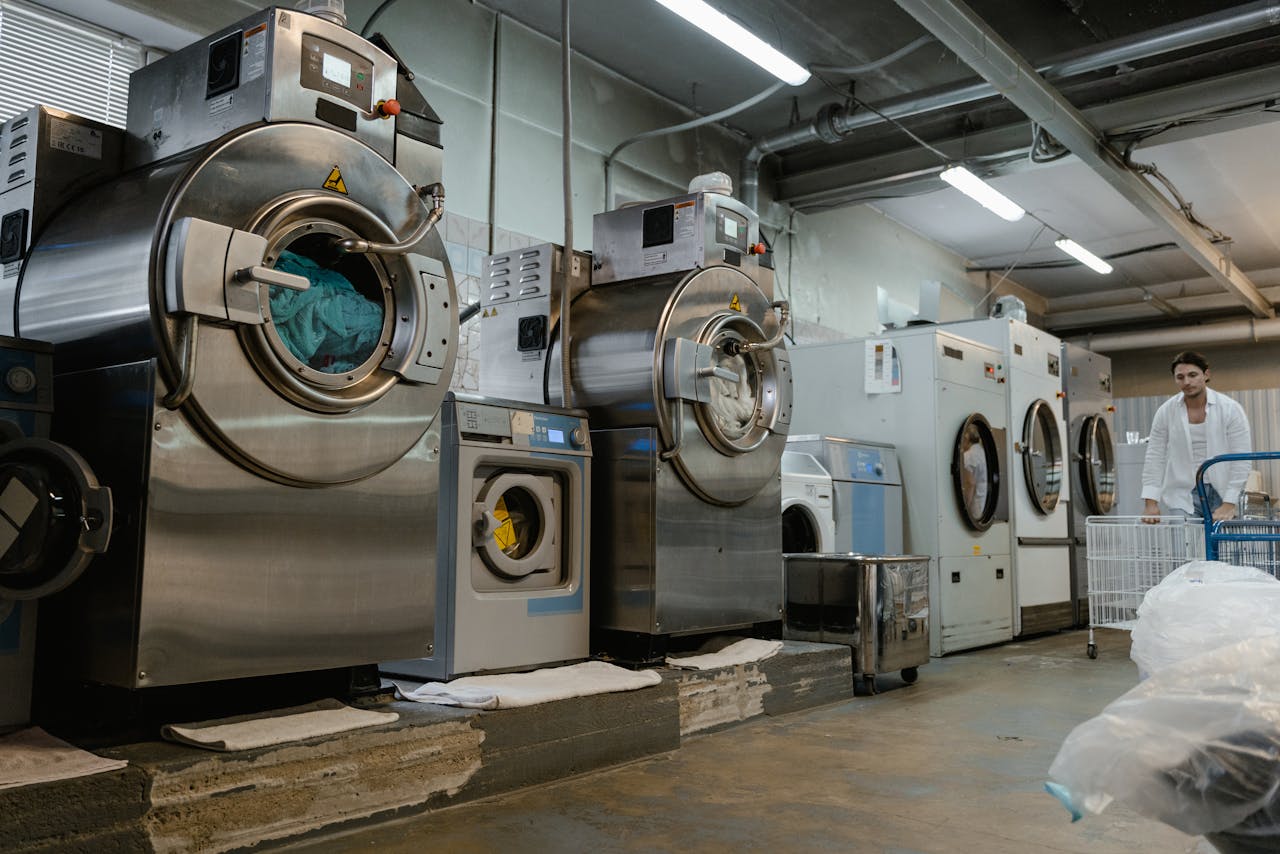Launching a Modern Coworking Space in Australia in 7 Steps
In recent years, coworking spaces have surged in popularity across Australia, as professionals shift toward more flexible, collaborative working environments.
Whether you’re catering to freelancers, startups, or remote teams from larger enterprises, launching a modern coworking space offers not only a solid business opportunity but also a chance to build a thriving local community.
This guide walks you through the essential steps for launching a successful coworking space, with a focus on both functionality and style—tailored to the Australian market.
Step 1: Define Your Vision and Target Market
Before you scout locations or start picking out furniture, take the time to clarify your vision.
Are you creating a sleek urban hub for creative professionals? A coastal space for digital nomads? Or a professional-grade facility for corporate teams needing temporary desks?
Knowing your target audience helps shape everything—from the pricing structure to the amenities you offer.
For example, startups may prioritize flexible leases and networking events, while consultants might need private meeting rooms and concierge services.
Step 2: Find the Right Space
Location is everything. You’ll want to strike a balance between accessibility and atmosphere. Proximity to public transport, walkability, and nearby cafés or restaurants are essential for member satisfaction.
When evaluating a property, consider the zoning regulations, natural lighting, and the potential for both open-plan and private office spaces.
A blank slate warehouse might appeal to creatives, while a refurbished corporate suite could suit a more buttoned-up clientele.
Don’t forget accessibility. A modern coworking space should include features like ramps, elevators, and smooth-flowing entrances.
A great choice for high-traffic entry points is a commercial sliding door, which provides both aesthetic appeal and practical functionality. These doors create a seamless entry experience that aligns well with the polished image of a coworking space.
Additionally, if you’re planning on having a garage, you’ll need to install a gate, which needs constant maintenance.
Automated gate repairs in Sunshine coast are one of the top options in the country.
Step 3: Design with Function and Aesthetics in Mind
The interior layout and design play a massive role in shaping the vibe and usability of your coworking space.
Think about creating zones: hot desk areas, private pods, quiet zones, and informal lounges. Breakout spaces, kitchens, and casual meeting areas help foster community and creativity.
Material choice matters too. Flooring, for instance, sets the tone for your space. Tasmanian oak flooring is a standout option, offering rich, natural tones with long-lasting durability.
Jarrah’s distinctive character adds warmth to modern interiors and gives your coworking space a distinctly Australian flair that’s both eco-conscious and high-end.
Acoustic panels, modular furniture, and ample natural lighting round out the essentials. Designing for flexibility is key—your space should be able to evolve with your users.
Step 4: Invest in Essential Infrastructure
Behind the scenes, your space needs to function like a well-oiled machine. Start with the basics: secure and scalable Wi-Fi, backup power solutions, and quality HVAC systems.
Security and controlled access are also a must.
Touchless entry systems and smart locks should be installed from the start, and for entrances, automated commercial doors not only add convenience but also elevate the overall experience.
Step 5: Handle Building Maintenance and Utilities
Once the core design and infrastructure are in place, it’s time to think long-term—specifically, how your coworking space will operate on a daily basis. One of the biggest areas new owners overlook is building maintenance.
Start with the essentials: efficient plumbing, reliable HVAC systems, and consistent electricity. Then move outside.
A clean, well-maintained exterior isn’t just about curb appeal—it also protects your investment. If you’re in a region prone to heavy rains or seasonal storms, proper drainage is vital.
Services like bifold windows in Sydney ensure your building’s windows and exterior infrastructure keeps water damage at bay and supports the long-term health of the property.
Internally, cleanliness plays a huge role in how your space is perceived. No one wants to walk into a sticky kitchen or have dust fall on their desk when they open their blinder.
That’s why it’s worth partnering with professionals who offer services like Melbourne curtain and blind cleaning to keep things spotless. Regular upkeep not only supports hygiene but also maintains a premium, professional atmosphere that will keep members happy and coming back.
Step 6: Implement Smart Technology Solutions
Modern coworking spaces thrive on smart technology solutions designed to optimize energy efficiency, enhance user comfort, and streamline operational tasks. Begin by choosing a robust coworking management platform to simplify desk bookings, meeting room reservations, invoicing, and subscription management.
Integrate energy-efficient solutions like smart thermostats, automated lighting systems, and access control technology to minimize unnecessary energy consumption and maintain optimal environmental conditions.
Additionally, upgrading to energy-efficient hot water systems such as heat pump hot water in Tasmania can significantly lower operational costs and reduce your carbon footprint.
Don’t overlook the value of incorporating an AI-driven chatbot on your website. Using chatbot creation tools, you can effortlessly handle common inquiries, streamline booking processes, and capture potential leads—even outside business hours.
Whether it’s freelancers browsing your site late at night or corporate teams seeking quick information, chatbots enhance customer engagement while reducing administrative tasks.
Finally, prioritize reliable Wi-Fi connectivity, cybersecurity, and data privacy. Ensure secure login protocols for members, offer guest Wi-Fi access, and consider investing in reliable technical support to swiftly resolve connectivity issues, ensuring uninterrupted productivity for all users.
Step 7: Create a Strong Brand and Community
The final step—arguably the heart of a successful coworking space—is building a community. It’s not just about desks and Wi-Fi. It’s about connection.
Start with branding. Your name, logo, and interior design should reflect your values. Are you sleek and minimalist, or cozy and vibrant? Carry that through your website, signage, and social channels.
Next, build in reasons for members to engage: networking nights, pitch sessions, lunch-and-learns, and local collaboration opportunities.
A curated calendar of events helps foster connection and word-of-mouth growth. Make your space more than just a place to work—make it a space where ideas are exchanged and relationships are built.
Offer perks and highlight local partnerships—coffee from nearby cafés, discounts for local gyms, or even art from local creators. These small touches deepen your connection to the community and enhance the value of your membership packages.
Conclusion
Launching a modern coworking space in Australia takes more than an open floor plan and a few Wi-Fi routers. From choosing the right materials like a premium jarrah wood floor, to installing a sleek commercial sliding door, every decision should enhance functionality, design, and user experience.
Don’t forget the backend: invest in strong infrastructure, reliable gutter and downpipe installation, recurring cleaning services, and smart automation like a chatbot creator to stay ahead of the curve.
In the end, coworking is about more than just space—it’s about creating an environment where people want to be. With the right steps and thoughtful planning, your space can become a hub of creativity, collaboration, and growth.

 Owning a franchise can be an excellent way to start a business with a proven model and built-in support. However, it’s important to understand the financial commitments involved before diving in.
Owning a franchise can be an excellent way to start a business with a proven model and built-in support. However, it’s important to understand the financial commitments involved before diving in.

